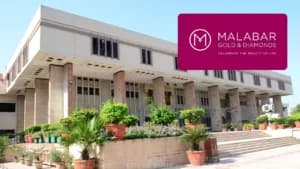In a significant judgment, the Kerala High Court affirmed that High Courts can exercise their supervisory jurisdiction under Article 227 of the Constitution of India to set aside ad interim injunctions granted by civil courts in suits barred under the Insolvency and Bankruptcy Code (IBC), 2016. The ruling came in the case of Vysali Pharmaceuticals Ltd & Anr. v. T. Beena & Ors., where Justice K. Natarajan emphasized the primacy of the National Company Law Tribunal (NCLT) in matters involving insolvency and liquidation.
Background of the Case
The petitioners, Vysali Pharmaceuticals Ltd and its liquidator, challenged an ad interim injunction order passed by the Sub Court, Ernakulam, in a suit filed by the 1st respondent. The suit sought a permanent injunction against the petitioners, despite ongoing liquidation proceedings before the NCLT. The petitioners argued that the civil court lacked jurisdiction under Sections 63 and 231 of the IBC, which bar civil courts from entertaining suits falling under the NCLT's purview.
Read also:- Delhi High Court Denies Patent for P2P Network User Tracking System Under Section 3(k) of Patents Act
Key Legal Issues
Jurisdiction of Civil Courts Under IBC: The court noted that the NCLT has exclusive jurisdiction over insolvency and liquidation matters. Sections 63 and 231 of the IBC explicitly prohibit civil courts from adjudicating such cases. The trial court failed to verify the suit's maintainability under Order 7 Rule 11 CPC, which mandates suo moto scrutiny of jurisdictional barriers.
"When the order is illegal without jurisdiction, then this Court can entertain the petition under Article 227 of the Constitution of India... Such being the case, the order under challenge calls for interference."
Alternative Remedies Not a Bar: The respondents contended that the petitioners could have sought relief under Order 39 Rule 4 CPC (to vacate injunctions) or filed an appeal under Order 43 CPC. However, the High Court held that illegal orders passed without jurisdiction warrant immediate intervention under Article 227, irrespective of alternative remedies.
Read also:- Supreme Court: Even Prisoners with Disabilities Cannot Demand 5 Star Food
Duty of Civil Courts: Justice Natarajan underscored that civil courts must proactively assess whether a suit is barred by law, even without a formal application:
"The trial court, while entertaining any suit, must suo moto verify whether the suit is maintainable or barred by law, as required under Order 7 Rule 11 CPC."
The Kerala High Court
- Set aside the civil court's ad interim injunction, declaring it illegal and without jurisdiction.
- Set aside the civil court's ad interim injunction, declaring it illegal and without jurisdiction.
- Directed the trial court to re-examine the suit's maintainability.
- Permitted the respondents to approach the NCLT for grievances related to the liquidation process.
Read also:- Allahabad HC Stays Proceedings Against Three Accused; Says "Marriage Gifts Not Usually Considered Dowry"
Implications of the Judgment
Strengthens NCLT's Authority: The ruling reinforces the IBC's framework by preventing parallel proceedings in civil courts.
Judicial Accountability: Civil courts must now rigorously verify jurisdictional limits before passing interim orders.
Efficiency in Insolvency Resolutions: Promotes timely resolution by directing parties to the NCLT, the designated forum for insolvency matters.
Case No.: OP(C) No. 800 of 2025
Case Title: Vysali Pharmaceuticals Ltd and Anr. v. T. Beena and Ors.
Counsel for the petitioners: D. Reetha, P.V.Vinod (Bengalam)
Counsel for the respondents: S. Shyam, P.A. Mohammed Aslam, Arthur B. George, E.B. Thajuddeen, Irshad V.P., Sarath Sasi, Muhammed Riswan K.A., Midhun Mohan, Abdul Samad P.B., Ramshad K.R.













